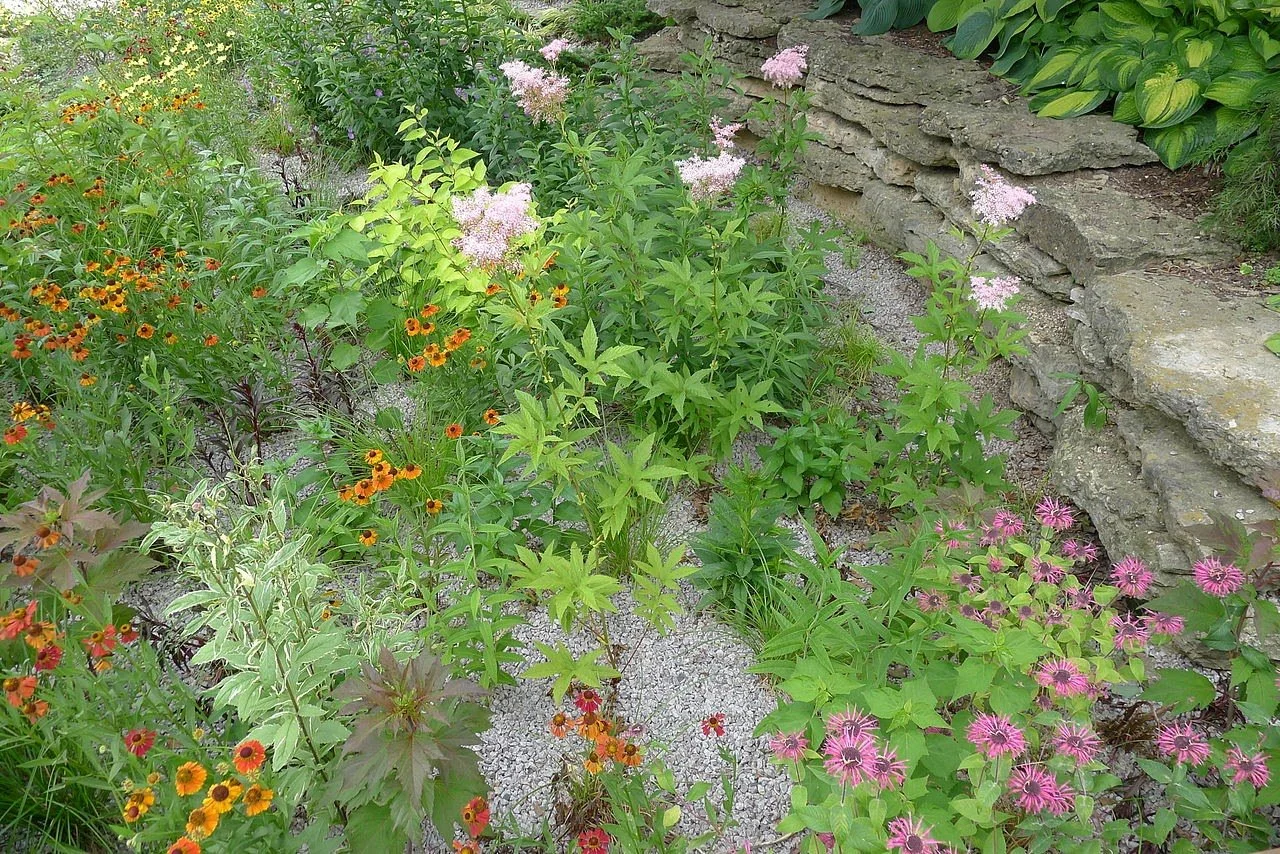
Backyard Conservation Program
Backyard Conservation Program
This program offers a 50/50 reimbursement of up to $200.00 back for establishing, enhancing, restoring and/or maintaining a backyard conservation project.
The 2025 Fall Backyard Conservation Program application window is now closed.
*Preference will be given to native tree and shrub projects for 2025 fall season.
*Applications sent via email or mail will not be eligible or accepted.
PLEASE NOTE: Applications for the year 2026 will exclusively be accepted online via JotForm.
All Fayette County Residents are Eligible to Apply (renters and landowners).
Submit Completed Projects
Submit receipts, invoices, and photographs of completed projects within 60 days of approval to receive reimbursement -- your "deadline" will be noted on your acceptance letter. Reimbursements are issued shortly following their approval at monthly Board meetings -- the second Friday of each month. Please allow up to 6 weeks for your reimbursement to be processed. Reimbursable items include rain barrels, soil amendments, mulch, plants, seeds, composters, hand-tools for planting, raised bed materials, greenhouse materials, native trees, beekeeping supplies, bat houses, and more!
Examples of Backyard Conservation practices include:
- Rain Gardens
- Rain Barrels
- Compost Bins
- Pollinator Gardens
- Beekeeping Supplies
- Bat Houses
- Garden Plots
- Raised Bed Gardens
Getting Started!
University of Kentucky, Extension Resources:
Resources for shrinking your lawn:
Resources for Permeable Surface:
Rain Gardens can remove standing water in your yard, reduce mosquito breeding, filter runoff pollution, and conserve water. They also create an environment that supports an increase of beneficial insects that can eliminate pest insects.
See University of Kentucky Extension Publication, HENV-205 for great information on the Design, Construction, and Maintenance of YOUR OWN rain garden!
Rain Barrels are an effective way to manage stormwater runoff and reduce the amount of pollutants in waterways. This can reduce the demand on municipal water supplies by using stored water to supply gardens and lawns.
University of Kentucky Extension Publication, AEN-106 (Harvesting Rainwater and Reducing Stormwater Pollution)
University of Kentucky Extension Publication, HENV-201 (Building a Rain Barrel)
Composting organic waste (versus landfilling) reduces carbon emissions!
The additional benefit is the nutrient amendment to soil when the composted material is applied.
Compost can thereby reduce the need for chemical fertilizers and aid in plant production.
You can purchase a ready-to-go composter, or build your own.
Kentucky Master Gardener's Manual Chapter: Composting
Lexington: Composting v. Yard Waste
Louisville's Guide to Composting at Home
How to Build a Compost Bin (Missouri Extension)




Pollinator Gardens support pollinators by supplying pollen and nectar to attract them to a specific area. Regardless of their size, pollinator gardens impact our crops and assist with fruit and vegetable production.
Learn how to:
Attract Butterflies with Native Plants
Plant Wildflowers for Pollinators
Also, consider having your pollinator support certified as a Monarch Waystation
View the Kentucky Monarch Conservation Plan here.
View the Kentucky Pollinator Protection Plan here.
Did you know that one-third of the world's food production depends on BEES?!
Beehives and Beekeepers contribute to the positive population growth and protection of these very important pollinators.
Be sure to use the resources from Kentucky Department of Agriculture State Apiarist!
View this helpful University of Kentucky Extension 4-H Bee Ambassador Program publication.
Check out the Kentucky State Beekeepers Association and their resources!
Now, you can also register your beehives for added protection!
The Kentucky Department of Agriculture Pollinator Protection Program is designed to be a voluntary tool between chemical applicators and beekeepers in an effort to reduce hive mortality. If a chemical product label specifies that the applicator must communicate with area beekeepers prior to spraying, this program allows for beekeepers and others who are voluntarily registered to receive an email. Monarch waystation managers, specialty crop farmers, organic producers are also welcome to use this site, but you need to register as "beekeepers." For more information, find the Pollinator Protection Program here.
Welcome beneficial guests with Bat Houses and Insect Hotels
to further help to promote and maintain pollinators in your backyard.
Bats Information for Homeowners from University of Kentucky Extension publication, FOR-48
Insect Hotels, "birdhouses of the insect world"
Garden Plots -or- Raised Bed Gardens are great for growing small plots of vegetables or flowers.
They prevent soil compaction, provide good drainage, and serve as a barrier to pests and pathway weeds.
University of Kentucky Extension has you covered again!
Please refer to "Growing Your Own" (A Beginner's Guide to Gardening) and Home Vegetable Gardening in KY for great information!
Other projects may be approved on a case by case basis.
Submit your completed application by mail or email as follows:
Fayette County Conservation District
141 Leestown Center Way Suite 210 Lexington, KY 40511
support@kyfccd.com
Backyard Conservation Supplies:
Our Backyard Conservationists have been busy finding great seeds, plants, and other materials for their projects! See the list below for vendor ideas.
Barefoot Farm Backyard Farming Co.
Bluegrass Greensource (great local source for rain barrels and installation workshops)
Capitol Wholesale Fence Company
Facebook Marketplace (be sure to take a screenshot of the item for sale, and obtain a written receipt from the seller)
Notes about your proof of purchase:
Please keep in mind that we need clear, legible receipts. Please keep your personal purchases on separate receipts to the extent possible. Please minimize receipt submissions by making small purchases together in one transaction. If you purchase from a vendor who does not typically issue receipts, or if you purchase something in cash -- you must obtain a proof of purchase from the vendor! We cannot reimburse cash purchases without a credible proof of purchase.
McLeod's Coffee House (rotating stock of unique bat houses & more)
















